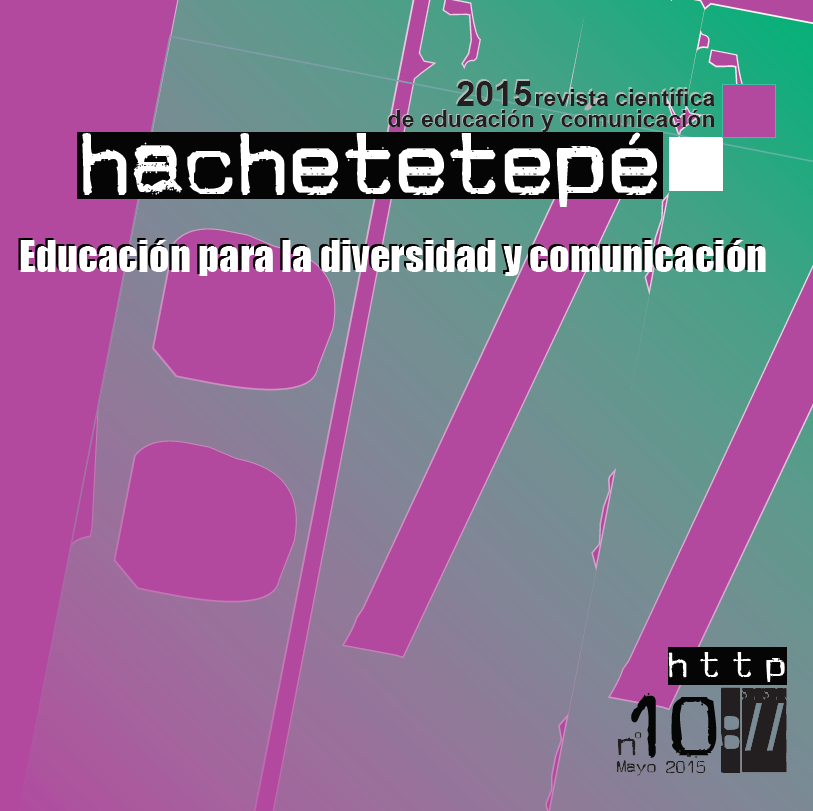Educating for diversity a challenge for the whole society
Abstract
Recognizing that ensuring equality and democratization of education necessary curricular reformulation, especially in teacher training courses, in order to strengthen education for diversity. This text aims to present reflections on education possible constructions of meaning of a pedagogical become involved in an education project that articulates the categories of gender, race and sexuality, perceiving the implications of a pedagogical do that I established on the challenges of educate plural subjects. For thus has elements for reflection and evaluation of the role of education in promoting inclusion by incorporating pedagogical actions of respect for differences in different dimensions.
Keywords
Downloads
How to Cite
License

This work is licensed under a Creative Commons Attribution-NonCommercial-NoDerivatives 4.0 International License.
Those authors who have published with this journal, accept the following terms:
- They will retain their copyright and guarantee the journal the right to first publication of their work, which will simultaneously be subject to the Creative Commons Attribution License . They may be copied, used, disseminated, transmitted and publicly displayed, provided that the authorship, url, and magazine are cited, and are not used for commercial purposes. No derivative works are allowed.
- They may adopt other non-exclusive license agreements for the distribution of the published version of the work (e.g., deposit it in an institutional telematic archive or publish it in a monographic volume) provided that the initial publication in this journal is indicated.
- Disseminate your work through the Internet (e.g., in institutional telematic archives or on your website) once the manuscript is accepted, which may lead to interesting exchanges and increased citations of the published work. (See The effect of open access).
Hachetetepé. Scientific journal of education and communication does not charge a fee for the submission of manuscripts or for the publication of its articles.
References
Arroyo, M. (2011). Currículo, território em disputa. Petrópolis: Vozes.
Almeida, L. (2012). “Analfabetismo funcional afeta a inclusão de jovens”. Em jornal A tarde 14.04.2012.Caderno 02 A.
Cardoso, C. P.; Silva, Z. P. (2010). “Pedagogias feministas como alternativa para uma educação anti-racista e anti sexista”. En Messeder, S. A. y Martins, M. A. (Coords.). Enlaçando Sexualidades, Salvador: EdUNEB; 241-254
Crenshaw, K. W. (2002). “Documento para o Encontro de Especialistas em Aspectos da Discriminação Racial”. Estudos Feministas. v.10, n.1.
Gadotti, M. (2010). Qualidade na educação: uma nova abordagem. São Paulo: Editora e livraria Instituto Paulo Freire.
Freire, P. (1992). Pedagogia da Esperança. Rio de Janeiro: Paz e Terra.
Freire, P. (1996). Pedagogia da Autonomia: Saberes necessários à prática educativa. São Paulo: Paz e Terra.
Gauthier, Cl y otros (1998). Por uma teoria da pedagogia: pesquisas contemporâneas sobre o saber docente - Coleção Fronteiras da Educação. Ijui: Ed. Unijuí,
Instituto nacional de estudos e pesquisas educacionais Anísio Teixeira. Censo Escolar 2011. Recuperado de: http://portal.inep.gov.br/basica-censo.
Junqueira Diniz, R (Org.) (2009). Diversidade Sexual na Escola: problematizações sobre a homofobia nas escolas. Brasília: Ministério da Educação.
Louro, L. (2003). “Currículo, gênero e sexualidade – o ‘normal’, o ‘diferente’ e o ‘excêntrico’”. En: Louro y otros (Orgs.). Corpo, Gênero e Sexualidade: um debate contemporâneo na educação. Petrópolis: Vozes.
Moreira, A. F.; Câmara, M. (2011). “Reflexões sobre currículo e identidade: implicações para a prática pedagógica”. En: Moreira, A.F. y Candau, V.M. Multiculturalismo: diferenças culturais e práticas pedagógicas. Petrópolis: Vozes.
Nascimento, F. (2009). “Desafios à Formação Docente: gênero e diversidade na escola”. En: Stevens, C.; Brasil, C. T. y otros (Orgs.). Gênero e Feminismos:
convergências (in)disciplinares. Brasília. Editora In Libris Libertas.
Nóvoa, A. (1992). “Para uma análise das instituições escolares”. En Nóvoa, A. (Org.). As organizações escolares em análise. Lisboa: Publicações Dom Quixote.
Paixão, M.; Rosseto, I.; Montovanele, F. y otros (Orgs) (2010). Relatório Anual das Desigualdades Raciais no Brasil; 2009-2010. Rio de Janeiro. Garamond Universitária.
Pesquisa nacional de amostragem por domicílio (PNAD/IBGE), 2009. Recuperado de:
http://www.ibge.gov.br/home/estatistica/populacao/trabalhoerendimento/pnad2009/.Acesso em 07 de junho de 2012.
Rago, M. (2003). “Por uma educação libertária: o gênero na nova escola”. In: Barbosa, R.(Org.) Formação de educadores: desafios e perspectivas. São Paulo: Editora UNESP.
Tardif, M. (2002). Saberes docentes e formação profissional. Petrópolis: Vozes.






